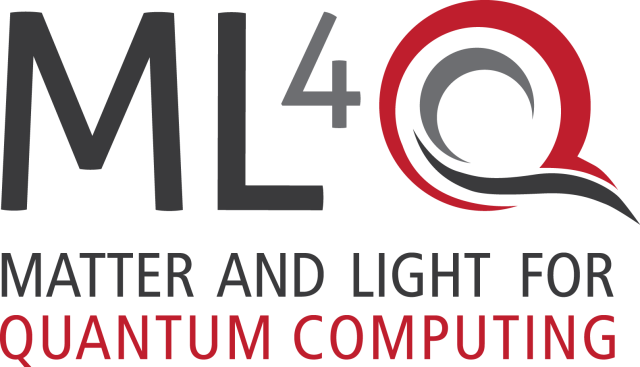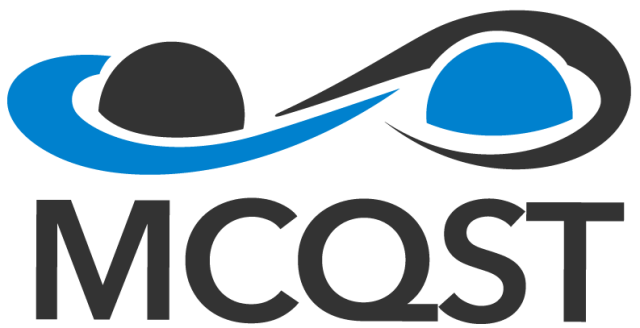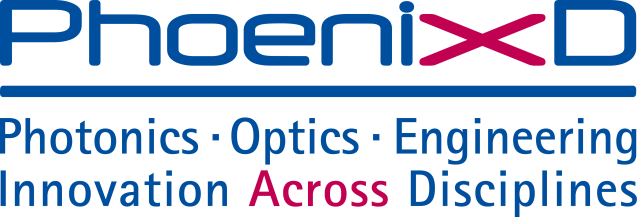Getting Started in the Quantum World
There are many different ways to enter the fascinating quantum world and to explore the matter and energy at the most fundamental level. Quantum phenomena are all around us, acting on every scale. You may just have started your career at your University or have already become an expert on your field.
On this page you'll find a variety of possibilities for PhDs:

Freie Universität Berlin | Humboldt-Universität zu Berlin | Technische Universität Berlin
Berlin School of Optical Sciences and Quantum Technologies (BOS.QT)
The Berlin School of Optical Sciences and Quantum Technologies (BOS.QT) is a joint graduate school of the Physics Departments of the Humboldt-Universität zu Berlin (HU Berlin), the Technische Universität Berlin (TU Berlin), and Freie Universität Berlin (FU Berlin) as part of Berlin Quantum in partnership with renowned research institutions of the Leibniz Association, the German Aerospace Center (DLR), the Fraunhofer and Max-Planck-Society and offers an academic training and research environment for acquiring a doctoral degree in natural sciences (Dr. rer. nat.) at one of the participating universities.

Universität Hamburg | Deutsches Elektronen-Synchrotron (DESY) |
Max Planck Institute for the Structure and Dynamics of Matter | European XFEL
Doctoral Programs
All PhD students are automatically members of the Graduate School and enjoy its benefits. These include not only intensive courses, but also the opportunity to receive financial support for attending conferences and workshops and for collaborations with renowned institutes.

Julius-Maximilians-Universität Würzburg (JMU) | Technische Universität Dresden (TUD)
Shared ct.qmat lectures by TU Dresden and JMU Würzburg - ct.qmat
Each professorship has its own research focus. To enable master and doctoral students from Dresden and Würzburg to benefit from the expertise of the other university, a cluster-specific lecture is offered and broadcast online.
Cluster Fall School - ct.qmat
During a biennial fall school, specialist lectures on the topic of complexity and topology in quantum materials are given by internationally renowned researchers. The school is co-organised by the early career researchers of ct.qmat’s Quantum Matter Academy.
Graduate Academy - TU Dresden
The Graduate Academy is the central contact and service point for all early career researchers at TU Dresden. It offers a qualification program specially designed for early career researchers, individual advice before, during and after the doctorate, funding programs and regular events for interdisciplinary networking
Graduate School of Science & Technology (GSST) - JMU Würzburg
The Graduate School of Science & Technology is an established and structured doctoral program of six natural science faculties at JMU. Doctoral students benefit from a mentoring program, an individual research plan, early contact with the international research community and a strong focus on the publication of research results.

Universität Stuttgart | Universität Ulm | Max Planck Institute for Solid State Research
IQST Graduate School
IQST Graduate School fosters collaborative research at the intersection of quantum science and technology with chemistry, biology, medicine and engineering. It focuses on knowledge exchange between different disciplines and projects. PhD researchers will work on exciting topics in quantum sensing, quantum computing or quantum materials and profit from cutting-edge new research buildings such as ZQB (Center for Quantum Bioscience) or ZAQuant (Center for Applied Quantum Technology).
DFG Graduate School Photonic Quantum Engineer
A new interdisciplinary training program covering different aspects ranging from novel materials and fabrication methods over electronics and data analysis to theory and simulations has been established. Each doctoral researcher will be supervised by one expert from physics and one from engineering and work on highly topical research projects related to quantum light sources, quantum sensing, and enabling technologies.
International Max Planck Research School for Condensed Matter Science (IMPRS-CMS)
The objective of the research school is high-quality fundamental research on condensed matter using advanced experimental and theoretical methods. The IMPRS takes on the challenge of creating an exciting, interdisciplinary PhD program that will motivate young scholars to choose a career in research.

University of Cologne | RWTH Aachen | University of Bonn | Research Center Jülich
ML4Q Training and Career Center
The ML4Q Research School helps to train the next generation of scientists and engineers in quantum technology. ML4Q PhD students and postdocs profit not only from an excellent scientific environment as well as networking possibilities, but also from vast training and career development offers.

LMU Munich | TU Munich | MPI of Quantum Optics | Walther-Meissner-Institute | Deutsches Museum
International Max Planck Research School for Quantum Science and Technology
Quantum science and technology is a vibrant and multidisciplinary field of research at the interface of physics, mathematics, computer science and material science. With over twenty experimental and theoretical research groups, Munich is one of the leading research centres in this field. Our international graduate program unites the competences of these research groups in Munich to a common research and teaching plattform, thus offering doctoral students exiting opportunities and exceptionally broad, yet focused training at the highest level.
Munich Quantum Valley Doctoral Fellowship Program
The Munich Quantum Valley (MQV) initiative organizes an annual international competition for highly prestigious, all-Bavarian MQV doctoral fellowships for outstanding young researchers. The MQV doctoral fellows selected through this competition receive a 3-year ad personam fellowship – they may freely seek to join any research group involved in research oriented towards QST goals at any Bavarian university.

TU Braunschweig | Laserzentrum Hannover | Max Planck Institute for Gravitational Physics (Albert Einstein Institute) Hannover
PRS4PHD - applications possible all year long
Young scientists find a unique scientific environment for their career development. As PhoenixD's graduate school, the PhoenixD Research School for PhD candidates (PRS4PhD) ensures that its members receive world-class training to support their individual research in the best way possible.

Leibniz Universität Hannover | TU Braunschweig | Physikalisch-Technische Bundesanstalt |
Max Planck Institute for Gravitational Physics (Albert Einstein Institute) | Laser Zentrum Hannover e.V. | University of Bremen, ZARM
QuantumFrontiers International Research School
We offer ECRs specific teaching in quantum and nanoscience and an intensive program of team building, scientific skills and transferable skills. We have more than 10 years of experience in leading successful international graduate schools, such as the International Max Planck Research School (IMPRS) and the Braunschweig International Graduate School of Metrology (B-IGSM).
QuantumFrontiers Braunschweig International School of Metrology
B-IGSM (TU Braunschweig and PTB’s graduate school with a focus on metrology) offers a well-rounded metrological qualification program: lectures, workshops, summer schools, excursions and more. The graduate school supports its PhD students in acquiring key competences in metrology as well as important soft skills and interdisciplinary qualification.